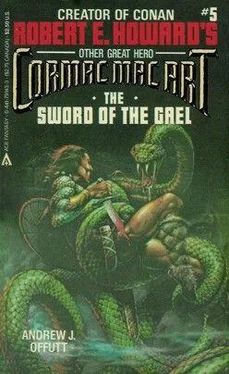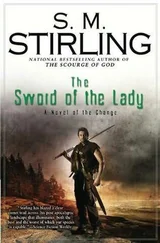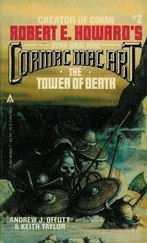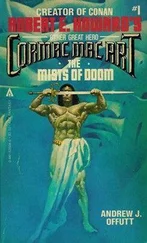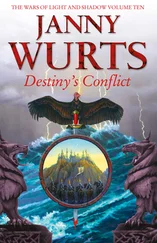Andrew Offutt - The Sword of the Gael
Здесь есть возможность читать онлайн «Andrew Offutt - The Sword of the Gael» весь текст электронной книги совершенно бесплатно (целиком полную версию без сокращений). В некоторых случаях можно слушать аудио, скачать через торрент в формате fb2 и присутствует краткое содержание. Жанр: Фэнтези, на английском языке. Описание произведения, (предисловие) а так же отзывы посетителей доступны на портале библиотеки ЛибКат.
- Название:The Sword of the Gael
- Автор:
- Жанр:
- Год:неизвестен
- ISBN:нет данных
- Рейтинг книги:3 / 5. Голосов: 1
-
Избранное:Добавить в избранное
- Отзывы:
-
Ваша оценка:
- 60
- 1
- 2
- 3
- 4
- 5
The Sword of the Gael: краткое содержание, описание и аннотация
Предлагаем к чтению аннотацию, описание, краткое содержание или предисловие (зависит от того, что написал сам автор книги «The Sword of the Gael»). Если вы не нашли необходимую информацию о книге — напишите в комментариях, мы постараемся отыскать её.
The Sword of the Gael — читать онлайн бесплатно полную книгу (весь текст) целиком
Ниже представлен текст книги, разбитый по страницам. Система сохранения места последней прочитанной страницы, позволяет с удобством читать онлайн бесплатно книгу «The Sword of the Gael», без необходимости каждый раз заново искать на чём Вы остановились. Поставьте закладку, и сможете в любой момент перейти на страницу, на которой закончили чтение.
Интервал:
Закладка:
“Why, he was born but a few centuries ago,” Wulfhere rumbled from the prow. “Compared with our Odin and your Crom, losa is a mewling child!”
Samaire shrugged. “It’s said we anticipated the coming of losa Chriost,” she said. “And all our festivals were merely warnings and anticipations of his arrival to rule the world, through bishops rather than Druids, through the Son rather than the Sun.”
After staring in horror and anger at her for a time, trying to digest that this one man, this Patrick, had begun the taming of his people, Cormac swung his head alee. There he showed his love of Patricius/Padraigh/Patrick and his selfish and thieving religion: he spat.
“And… Leinster?” he asked at last.
“Like all Eirrin, Leinster is home now to many Christians, Cormac mac Art.”
“And… her royal house?”
“You know that King Enda drove off the crossworshipers, but that his son Crimthann gave them a church-plot, a ‘see’ as they term it, over in Aghade. As for our father, it’s lip service he gave them, because it was politick. But… no, Cormac, we are none of us of the new faith.”
“Good,” Cormac nodded. “I’d hate to be throwing ye into the sea, dairlin girl, and after delivering ye of the Vikings and their sorcerous Druid.”
She looked at him whimsically, eyebrows up. He read a challenge there, and thought again that this woman he called girl was of stout stuff indeed. She’d issue challenge to the Dark Ones themselves-and there’d likely be wagers on both sides at that!
“Behlfires yet burn on all the hills of Eirrin,” Ceann said. He plucked idly, but did not sing.
The ship scudded along with taut sail and silent crew. They were thinking of the new faith, and what it might bode for Eirrin in future. It was not a tolerant cult, and already there were stories of murder and awful death visited on non-adherents in lands where it was strong. Though the man losa was a Jew, Christians were now treating Jews as filth, supposedly for having brought about his death-when they knew he had been executed by some Roman governor for speaking sedition and rousing the people. Too, surely it was a spear from a Christian hand that had slain the Emperor Julian, he who tried to curb the growing power of the new faith and restore some of the old. A soldier, Julian had most likely been a devotee of Mithras. That old soldier’s god had been born in a cave or stable under a bright star, attended only by animals and some wise men who came from afar to pay their respects.
As he had hurled down Crom Cruach’s statue on Magh Slecht in a symbolic slaying of the old god of Eirrin, so had Patrick set in motion the forces to destroy Crom in truth, with the others of the old pantheon. As for mewling Brigit, who gave away all hers and her father’s holdings so that none would accept her even as a servant in the household… surely quite mad was that follower of Padraigh and his Eastern god!
“Remember our need of fresh water,” Wulfhere at last rumbled, “and turn those moping eyes seaward. Be those trees I’m seeing?”
They looked. Samaire smiled. It was indeed trees the Dane saw, and the sun was but a little past its zenith when they were easing into a lovely little harbour. Trees rose above from the high stony banks, and birds sang their joy. Crystal water came tumbling down from steep rocks to add to the ocean’s gallonage. Splashily, they made fast their long, long canoe.
Wulfhere groaned when good ale must be poured out to empty leathern bags for sweet water. Warning that such a lovely isle surely would not be unpeopled, Cormac kept a keen watch while the others cleansed themselves. It was much in love with cleanliness, his people were. He took his turn in the water after, while Wulfhere scanned inland. No one else came.
Bathed and with water taken on, they put to sea again without incident.
The wind was good. The ship cut her way through the water with a long white trail of foam seething in her wake. For a long while on the nearly flat plain that was the sea they were as alone as travelers can be, surrounded on five sides by water and roofed over with a summery sky that was almost the same colour.
The sun was low when Wulfhere spoke Cormac’s name quietly.
The Gael joined the giant at the prow. They were coming up on an island off to starboard, a small chunk of cone-shaped rock like a Pictish granary of stone. A wispy tendril of smoke curled up from it.
“See you that piece of rock?”
“Of course,” Cormac said.
“Of course, the man says, as though speaking to a child. Cormac-I know these waters, I’ve been here before, and I know not that isle of stone!”
Cormac squinted, staring at the bristly cone that rose above the deep blue of the sea, and he said, “Ummm.”
“A fine comment from a man who’s spent a halfscore years asea!” Wulfhere snapped in exasperation. “Look here-I swear by all the gods of the Danes and aye, those of your people too: that overgrown chimney was not here when last I sailed these precincts!”
Cormac blinked. “But-we must be off-course, or you remember awrong. Islands don’t just… appear.”
Wulfhere snorted. He was certain of himself, but not of the new land. For many minutes, as they drew abreast and then passed the rough-hewn and totally forbidding cone, they were sore confused. It defied them, brooding sullenly and trailing its sinister smoke. It was Ceann, then, who provided the beginning of the answer.
“The water… it’s hot .”
“Be that a storm ahead?” his sister asked nervously.
On their course well ahead was indeed a great darkness on the sea, with no cerulean sky visible. And when Cormac leaned out and down, he discovered that Ceann was right; the sea was unnaturally warm. He and Wulfhere exchanged frowning glances.
Ahead, there was the sound of thunder. The sea raised waves, which grew and billowed. The sail commenced to flap.
“The heat, Cormac-that land we just passed is new-risen, and so recently it is still earth-heart hot!”
The Gael was wrestling with cordage and the tiller. “The sea is angry about it-and glad I am we came not upon that pile of stone when it was a-rising from the keep of Mannanan macLir!”
Then the sun vanished.
There was darkness in the hours of day. The sea ahead erupted in fire and black clouds and great billows of hissing steam. Their slim, one-sailed craft was rocked as waves came rolling to meet them. Abruptly they were all down and groaning, for with a loud crack of sail, the ship lurched to port.
The sea rolled high. Waves rushed and spray was flung high aloft by an angry wind with no mind as to which way it would blow.
Cursing and ready to admit fear, Cormac mac Art struggled over their cargo-well lashed down, thank all the gods-to the sail.
“The sail! We’ve got to get it down!” he yelled. Whistling wind flung his words heedlessly aside-and sent him rolling as well. The small ship swung half about and raced a hundred yards eastward before starting to swing again.
Then there was the ear-splitting crack and roar of a thousand thunders. From the very sea ahead a blazing hell erupted. Orange flame shot skyward to singe the clouds themselves. A mighty torch lit the sky, greater than all the Behl-fires of Eirrin put together. In its glow danced thousands of black dots and spinning, whirling, sky-flying chunks of rock the colour of flame. Oust and black cinders blotted the sky. In an instant night was upon them-lit by that groaning, billowing column of flame ahead. There was a counterpoint sound: a deep-voiced hissing, as molten stone from the sea’s floor and the earth’s entrails struck the water. Steam boiled up in mile-high columns of boiling billowing grey-white.
A great lava missile, surely equaling Wulfhere’s weight, came end-over-ending from the very sky to strike the water with a splash and a hiss not twenty feet off the starboard side no, the port side, for that swiftly the ship heeled and spun almost completely about.
Читать дальшеИнтервал:
Закладка:
Похожие книги на «The Sword of the Gael»
Представляем Вашему вниманию похожие книги на «The Sword of the Gael» списком для выбора. Мы отобрали схожую по названию и смыслу литературу в надежде предоставить читателям больше вариантов отыскать новые, интересные, ещё непрочитанные произведения.
Обсуждение, отзывы о книге «The Sword of the Gael» и просто собственные мнения читателей. Оставьте ваши комментарии, напишите, что Вы думаете о произведении, его смысле или главных героях. Укажите что конкретно понравилось, а что нет, и почему Вы так считаете.
